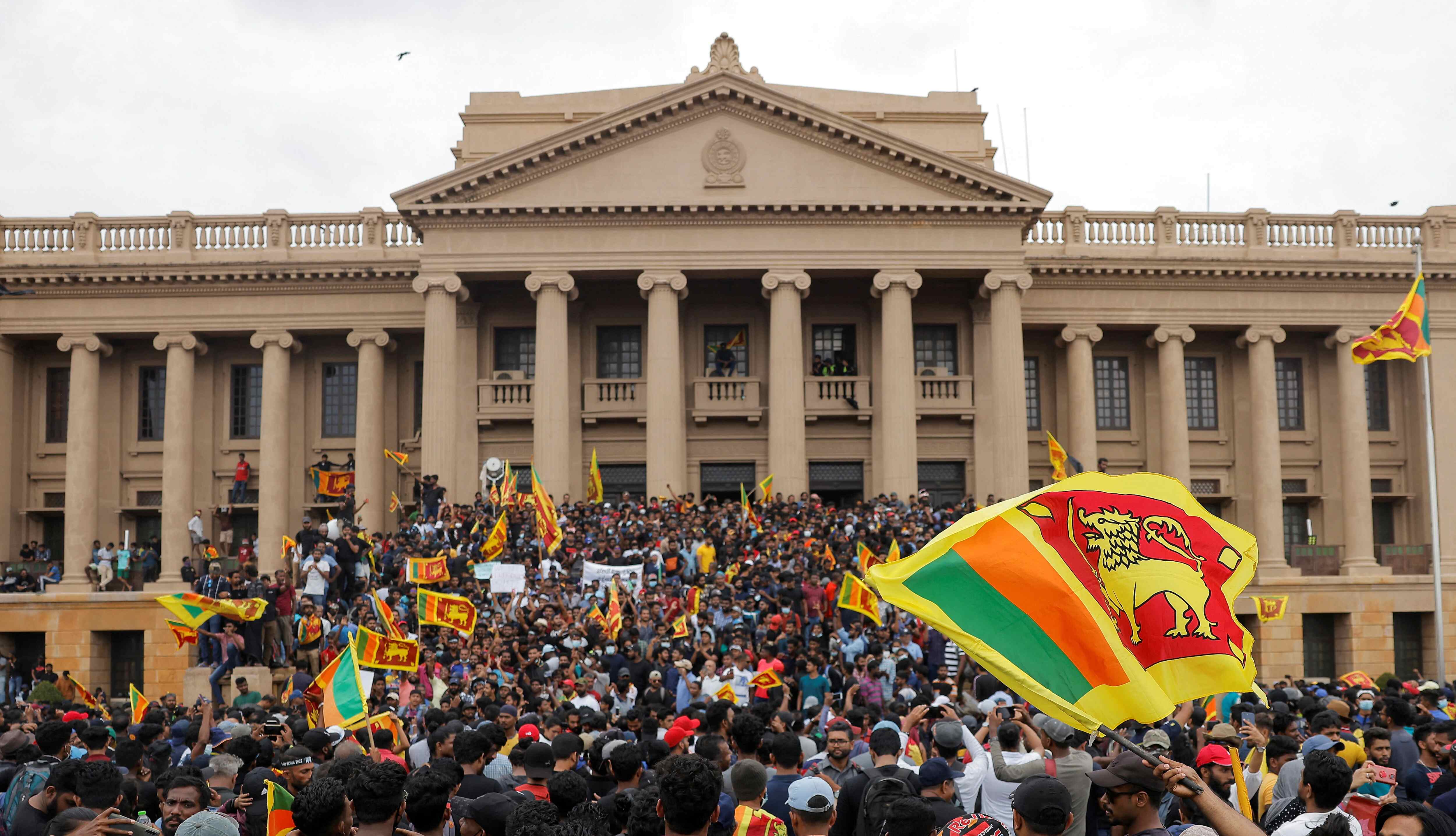Make-or-break moment

Finally, the month-long political crisis in Sri Lanka appears to be reaching its climax, with the resignation of the President Gotabaya Rajapaksa and the Prime Minister Ranil Wickremesinghe almost sealed. Opposition parties are looking forward to forming a new government. It can just be hoped that the political turmoil in India's southern neighbour subsides soon. But the political crisis in the island nation is accompanied by an economic crisis as well, which will require months of dedicated domestic restructuring and international cooperation in its resolution. Both the political and economic sides of the crisis have been fuelling each other and, with the resolution of the former, later can also show signs of recovery. The makers of democratic government in the country — its people — have taken the task of solving the conundrum themselves, pointing towards the outright failure of democratic institutions in serving their interests and raising their voices. Mass protest, or if it can be called a revolution, is the ultimate form of democratic action. Resorting to this means by people is an indicator that no less than an overhaul in government and economic machinery is needed. President of Sri Lanka and the most influential face of the Rajapaksa family, Gotabaya Rajapaksa, who rode to power on his popularity as victor over the LTTE, has decided to leave the high office, and is missing. People have forcibly taken over his official residence, and are insisting on staying there until the resignation is made formal. Despite their success in the Civil War, Rajapaksa brothers lost their credibility among people due to crude mismanagement of the government, foreign policy blunders and widespread corruption. It is clear that Sri Lankans are not willing to give Rajapaksa brothers another chance. So, the onus of undoing the blunders of the past will now rest upon the new government once it is elected. This is indeed a make-or-break-moment for the nation. The responsibility to take the road that leads to prosperity, and not further chaos, stands distributed among various stakeholders. The most crucial is the role of the Opposition parties if the aim is to get out of political quagmire first, and then use it to get past economic woes. It will be extremely critical to note how the consensus between the opposition parties pans out at this juncture. In the historic crisis Sri Lanka is into, it requires a firm vision. This is a time when the country's leadership should be sought by the Opposition not just with power in mind but with a commitment to sail against the tide and put the nation on calm waters. In doing so, overwhelming international support is needed — which again hinges on the change in guard of the country. The International Monetary Fund (IMF) is keeping a close eye on the situation in Sri Lanka to extend fresh bailout packages. Arguably, IMF bailout packages have not worked well for Sri Lanka. In fact, as some experts argue, it has added more to the problem rather than solving it. Chinese assistance to Sri Lanka, again, comes with its own consequences. Amid all this, India has remained true to its commitment of providing humanitarian assistance to the crisis-ridden nation. India has thus far provided assistance worth USD 3.5 billion in 2022 to manage the shock experienced by the Sri Lankan economy. More aid is promised. Tamil Nadu has been facilitating supplies of essential commodities like rice. Dispatch of 4,500 MT of rice is in the pipeline. Additionally, India has also given credit facility to Sri Lanka for the import of fertilisers, which will help buttress the ailing food production within the country. It will be a sovereign decision of the new government, when/if it is formed, to balance between the aid and grant providers. Sri Lanka will need to make careful choices at this critical juncture. India should also practice extreme caution in ensuring that it doesn't cross the line of sovereignty in pursuit of helping Sri Lanka. The Indian High Commission in Sri Lanka has categorically denied sending troops to the island nation. Besides being rightful in its action, India should also be mindful of misinformation that could make a dent in its credibility. Taking Sri Lanka out of the crisis has now become a collective responsibility of the to-be-formed national government, its people who need to maintain their composure and the international community. Let's stand by the side of Sri Lankans in this time of adversity.



